SUMMARY
This is AI generated summarization, which may have errors. For context, always refer to the full article.
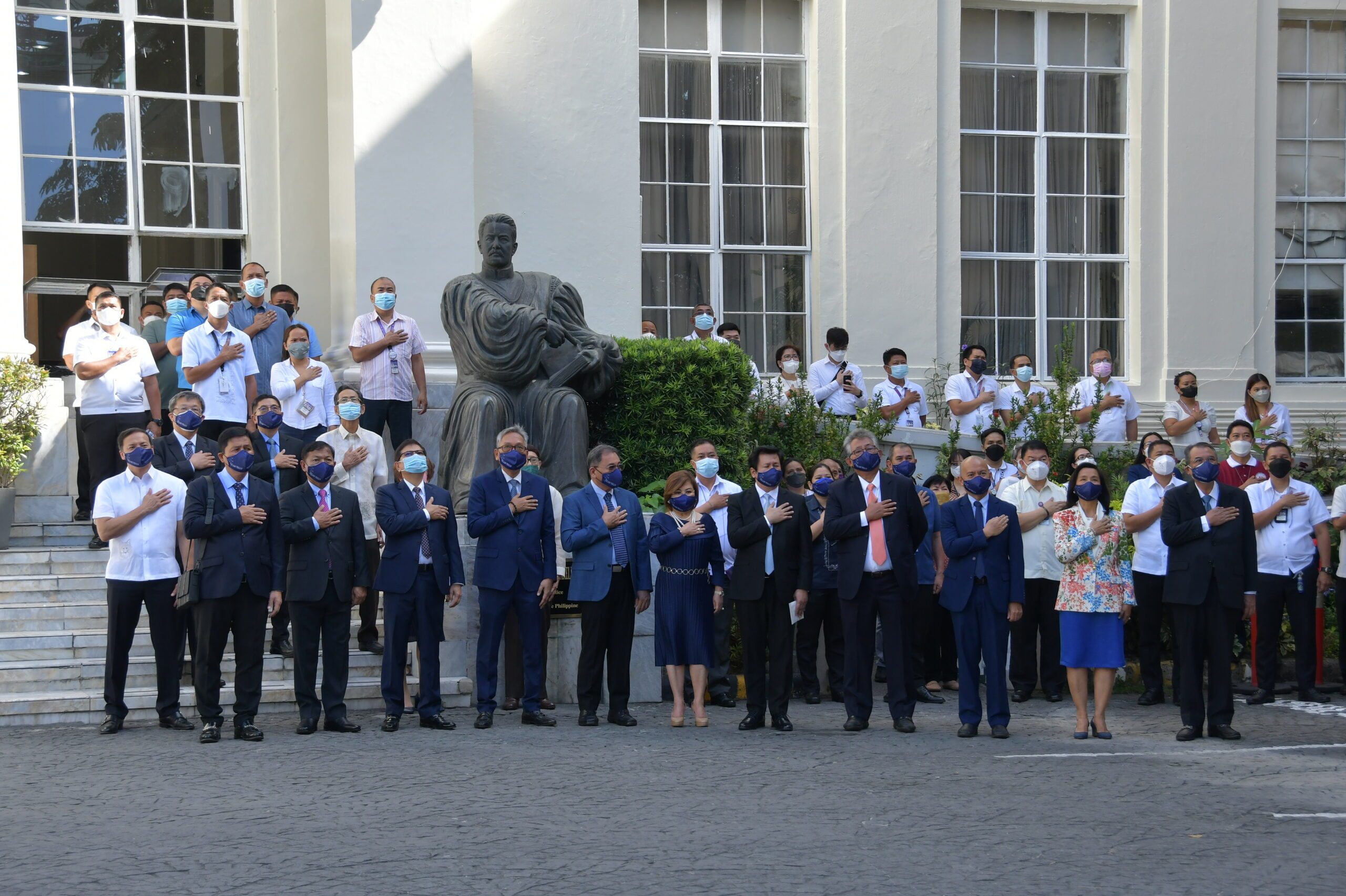
MANILA, Philippines – In an unexpected move, the Supreme Court (SC) en banc on Thursday, May 19, issued a resolution that required Congress, the Commission on Elections (Comelec), and presumptive president Ferdinand “Bongbong” Marcos Jr. to answer the petition that sought to void Marcos’ candidacy, and in effect, his win.
Although an order to answer is a procedural step, the Supreme Court is on a writing break and was not set to meet en banc or as a body until June 14. En banc sessions are also held Tuesdays of the week, and not Thursday.
But according to the announcement by the SC Public Information Office, the en banc ordered the answer on Thursday, giving Congress, the elections body, and Marcos 15 days to submit their comment.
This is in relation to the petition to cancel Marcos’ certificate of candidacy (COC) elevated to the Supreme Court by the group of former Court spokesperson Ted Te. The group asked for a Temporary Restraining Order (TRO) or to stop the canvass and the proclamation of Marcos and presumptive vice president Sara Duterte.
By ordering an answer only, it effectively means there is no TRO for now. And if the respondents maximize the 15-day deadline to file their answer, it would mean the canvass of Congress will likely push through on May 24, which is only five days from Thursday.
Senate President Vicente “Tito” Sotto III told reporters they could proclaim Marcos and presumptive vice president Sara Duterte on May 26 “if we start on the 24th nonstop.”
“We are glad that the SC has required comment on the petition but considering that time is of the essence, we hope that the period may be considered inextendible,” said Te.
Te added: “The petition is one of first impression and of grave public interest and we hope that the Court will be given the opportunity to rule substantively on the issues raised.”
Mendoza manifests
Hours before the Supreme Court announced its move, Marcos through his lawyer, the dictator’s solicitor general, Estelito Mendoza filed a short 3-page manifestation saying the High Court could not stop the canvass and the proclamation.
Mendoza cited Section 4, Article VII of the Constitution which says “Upon receipt of the certificates of canvass, the President of the Senate shall, not later than thirty days after the day of the election, open all certificates in the presence of the Senate and the House of Representatives in joint public session, and the Congress, upon determination of the authenticity and due execution thereof in the manner provided by law, canvass the votes”
The same provision says: “The person having the highest number of votes shall be proclaimed elected.”
Mendoza said no more in his manifestation than: “All of the above provisions, in language and intent, are mandatory and the Supreme Court is without jurisdiction to prevent their implementation.”
Before the Supreme Court ordered Congress, Comelec and Marcos to answer, the presumptive president through Atty Estelito Mendoza already submitted manifestation saying SC has no jurisdiction to stop the canvass and proclamation @rapplerdotcom pic.twitter.com/mT9DMFxxMY
— Lian Buan (@lianbuan) May 19, 2022
‘Constitutional crisis’?
In their petition, Te and his group said that if Marcos’ COC is canceled, the real winner would be Vice President Leni Robredo because the former’s votes would be declared stray, and the second placer would become the first placer among all qualified candidates.
Sotto warned Thursday of a constitutional crisis if the Supreme Court stops the canvass and proclamation.
Howard Calleja, lawyer of the martial law survivors who also elevated their own case against Marcos, said “I respect the view of the good Senate President however, similarly as Congress has a mandate, so does the Judiciary to interpret and follow the rule of law being an independent branch of government.”
Election lawyer Emil Marañón earlier said the Supreme Court can still rule beyond proclamation.
“I believe that the TRO will more likely not be granted since one requirement for its grant is that there must be irreparable or irreversible injury. None of that exists,” said Marañón.
“Even if Marcos has already sworn and assumed office, the Supreme Court would still have residual jurisdiction to rule on whether or not he committed material misrepresentation in his Certificate of Candidacy and order its cancellation, if it finds basis,” said Marañón.
On Wednesday, May 18, the martial law survivors elevated their petition to disqualify Marcos, but for unclear reasons this was not included in Thursday’s order by the Supreme Court. While a disqualification case is different from a cancel COC case, the martial law survivors said a disqualification post-election would have the same result, which is to declare the second placer the winner.
The cases root from Marcos’ 1997 conviction on four counts of failure to file his income tax returns when he was governor of Ilocos Norte from 1982 to 1985.
Read these two explainers on the substantive rulings of the Comelec denying the petitions in their level:
- SUMMARY: Comelec 2nd Division ruling junking case to cancel Marcos candidacy
- EXPLAINER: Comelec First Division ruling on Marcos – is failure to file ITR immoral?

– Rappler.com
Add a comment
How does this make you feel?








![[New School] Tama na kayo](https://www.rappler.com/tachyon/2024/02/new-school-tama-na-kayo-feb-6-2024.jpg?resize=257%2C257&crop=290px%2C0px%2C720px%2C720px)
![[Only IN Hollywood] After a thousand cuts, and so it begins for Ramona Diaz and Maria Ressa](https://www.rappler.com/tachyon/2024/02/Leni-18.jpg?resize=257%2C257&crop=262px%2C0px%2C720px%2C720px)
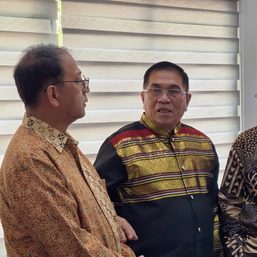
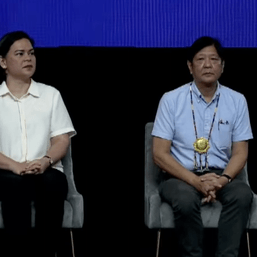
![[In This Economy] Is the Philippines quietly getting richer?](https://www.rappler.com/tachyon/2024/04/20240426-Philippines-quietly-getting-richer.jpg?resize=257%2C257&crop=194px%2C0px%2C720px%2C720px)
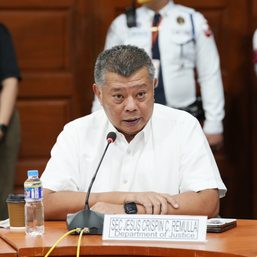
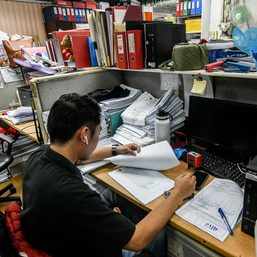
There are no comments yet. Add your comment to start the conversation.